The Disinformation Commission (disinformationcommission.com) presents itself with a simple mission: “We Monitor, We Act, We Protect.” Though still relatively new and not fully transparent about its leadership or governance, the initiative signals growing global concern over the dangers of disinformation.
Mission and Focus
From its tagline, the Commission appears committed to three pillars:
Monitoring false and misleading information circulating online and offline.
Acting when disinformation is detected, whether through fact-checking, corrections, or public communication.
Protecting societies from the destabilizing effects of manipulated narratives.
These goals mirror broader international efforts to reduce the harms caused by disinformation, such as democratic erosion, public mistrust, and the spread of hate or violence.
Why It Matters
Disinformation is not just about fake news; it is a weapon that can influence elections, disrupt public health campaigns, and divide communities. Organizations like the Disinformation Commission aim to fill the space between government oversight, civil society watchdogs, and tech platform responsibility. By acting as a neutral body, they can potentially alert the public to harmful trends while promoting media literacy.
Global Context
Other regions have tried similar approaches. The European Union enforces a Code of Practice on Disinformation, while UNESCO emphasizes balancing counter-disinformation efforts with freedom of expression. In countries like Sri Lanka, partnerships between UN agencies and local groups monitor hate speech and misinformation to maintain social stability. For the Commission to succeed, it must align with these international principles of transparency, accountability, and respect for free speech.
Challenges Ahead
Despite its promise, any disinformation watchdog faces obstacles:
1. Defining the line between harmful disinformation and legitimate opinion.
2. Credibility—without clarity on funding or leadership, neutrality may be questioned.
3. Access to data, since much disinformation circulates on closed or private platforms.
4. Speed and scale, as false information spreads faster than corrections.
5. Measuring impact—success is hard to quantify beyond tracking reach or awareness.
What Remains Unclear
At present, little is known about the Commission’s actual structure, jurisdiction, or methodology. Is it advisory, regulatory, or purely a research and advocacy body? Until those details are made public, its role remains more aspirational than authoritative.
Conclusion
The Disinformation Commission is a timely addition to the growing movement against false and manipulative information. Its effectiveness, however, will depend on whether it can earn public trust through openness, impartiality, and collaboration with media, academia, and technology platforms. In an age when truth itself is contested, such institutions can help protect the integrity of information—if they themselves remain credible.
Comments URL: https://news.ycombinator.com/item?id=45565428
Points: 1
# Comments: 2
Source: news.ycombinator.com

